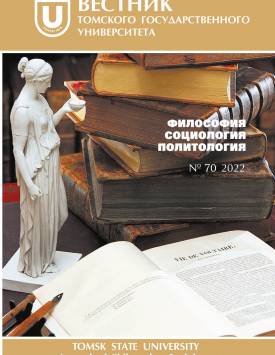Aristotle’s philosophy as a methodological foundation of university education in Philip Melanchthon’s thought
In the beginning of the Reformation, Martin Luther opposed not only medieval scholasticism, but also Aristotelian philosophy as its foundation. Philip Melanchthon, his younger humanistically predisposed colleague at the Wittenberg University, at first appropriated such Luther’s stance by offering a course grounded on Pauline theological accents as interpreted by Augustine. Such a program, however, could not encompass the needs of the students of various fields of study. Therefore, in the1530s Melanchthon reorganized the University’s curriculum by basing it on Aristotle’s natural and moral philosophy. According to Melanchthon, who regularly taught philosophy of Aristotle and published commentaries on his works (On the Soul, The Nicomachean Ethics), appropriation of the general philosophical method had to precede any specialization within a course of studies. Melanchthon chose Aristotle’s philosophy to that end as it satisfied the criteria of intellectual and linguistic accuracy and at the same time accessibility. He preferred it to the philosophical systems of Stoics, Platonists, and Augustine. Aristotle’s works on natural philosophy are needed to develop an appropriate mindset to be able to strictly ground one’s arguments on facts rather than resort to speculative syllogisms of scholastic kind. In other words, philosophy is necessary to cultivate a certain habit (ἕξις) as a practice of relating all cognizable things to the right method mastered by way of study of Aristotelian philosophy as it pertains to the chosen field. Aristotle’s moral philosophy was supposed to be instrumental in maintaining the established order, to avoid turmoil and rebellion. Melanchton’s pedagogical reform, which earned him the title of Praeceptor Germaniae, determined the character of higher education at the German universities at the time. Lessons of this reform with its foundational place for philosophy as such may turn out to be useful in deciding on priorities for contemporary higher education. The author declares no conflicts of interests.
Keywords
Melanchthon, Aristotle, methodology, Wittemberg, ReformationAuthors
| Name | Organization | |
| Streltsov Alexey M. | Institute of Philosophy and Law, Siberian Branch of the Russian Academy of Sciences | streltsov@mail.ru |
References

Aristotle’s philosophy as a methodological foundation of university education in Philip Melanchthon’s thought | Tomsk State University Journal of Philosophy, Sociology and Political Science. 2022. № 70. DOI: 10.17223/1998863X/70/13
